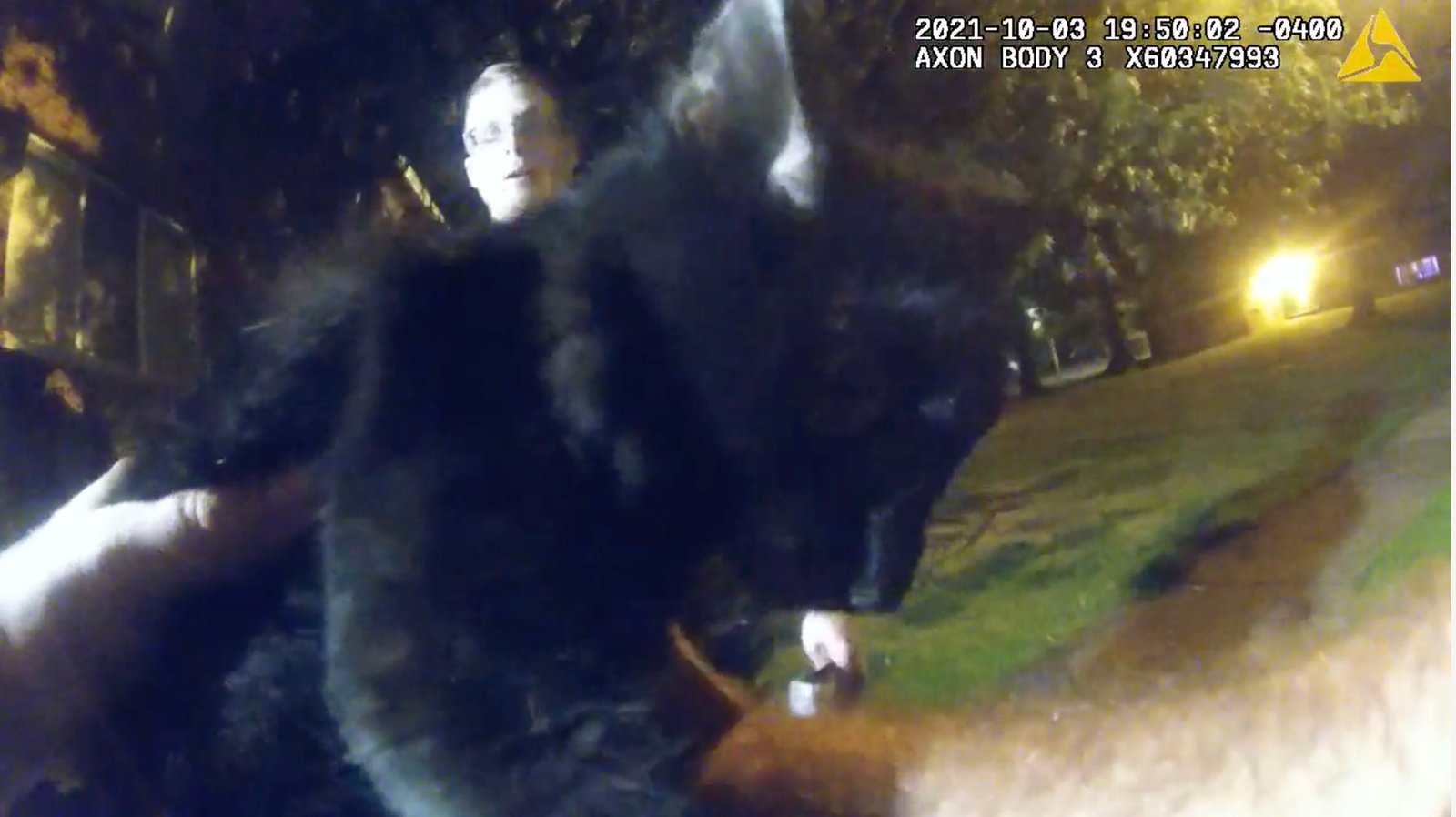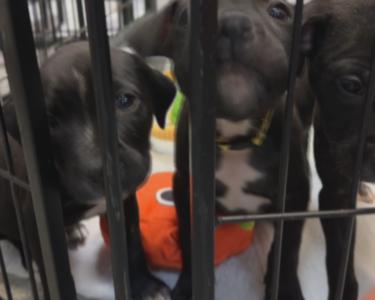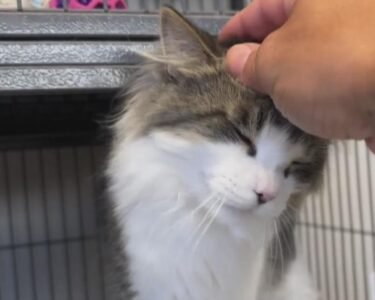CLEVELAND, Ohio – Cuyahoga County prosecutors say those who abuse stray cats and dogs should be punished just as severely as those who mistreat pets.
It’s a distinction that they’re taking to the Ohio Supreme Court, which is reviewing the case of a Cleveland man whose felony animal-cruelty conviction was overturned. The reason: An appellate court says prosecutors could not prove that the cat the man soaked with bleach was someone’s pet.
The case highlights what prosecutors say is a loophole in the state’s so-called Goddard’s Law, which elevated severe animal abuse of companion pets to a felony. If the state’s high court allows an appellate court’s decision to stand, prosecutors say it will result in the law not applying to strays.
One appellate judge who voted to overturn the man’s conviction invoked George Orwell’s “Animal Farm” and invited state lawmakers to rewrite the law.
“As of now, the Orwellian standard that ‘all animals are equal, but some animals are more equal than others’ unfortunately holds true,” wrote 8th Ohio District Court of Appeals Judge Sean Gallagher.
County prosecutors asked the state’s high court to reverse the appellate court’s decision and find that stray cats and dogs are also protected by the felony statute.
The office has met with groups, including the Animal Legal Defense Fund, Ohio Animal Welfare Foundation and the Cleveland Animal Protective League, about filing briefs in support of their motions.
“It’s our job to hold individuals who do this to animals accountable,” said Michael O’Malley, the county’s prosecutor.
The entire dispute hinges on how judges define the word “kept.”
The kitten
The case started in October 2022, when Cleveland police got called to a dispute between tenants in an apartment building. A man met officers in the parking lot and told them that another resident, Alonzo Kyles, was pouring bleach all over the floor of the building’s stairwell because there was a cat in there.
The man said he asked Kyles why he couldn’t just open the door to let it out, and Kyles responded that he was afraid of it.
Officers opened the door to the stairwell and were hit with a wave of bleach smell. Then they spotted the cat, a small, black male, lying on his belly at the bottom of the stairwell and meowing in distress. The cat did not move.
The officer noticed that the cat’s fur was soaked with bleach and that his paws were red and swollen. The cat did not fight or try to escape the officer’s grasp. He said it appeared that the animal had been declawed.
Kyles then came into the stairwell holding a mop and wearing gloves.
“Are you insane?” one of the officers asked. “This is a completely irrational response.”
Kyles said that he “couldn’t get the cat out of here.”
The officer holding the cat asked why Kyles couldn’t have just placed the animal outside. Kyles said he was afraid of the cat.
“OK, well, this poor animal is probably going to die now because it drank bleach, so good job,” the officer said.
Officers took the cat to West Park Animal Clinic where it was treated for ulcers on its feet.
A grand jury charged Kyles under the felony cruelty against a companion animal statute, which was passed in 2016.
A veterinarian who treated the cat testified at Kyles’ trial in November 2022 that the animal tolerated a bath much better than most feral cats but that he was slightly underweight and was not being cleaned.
Kyles opted to have Cuyahoga County Common Pleas Court Judge Nancy Margaret Russo render a verdict instead of a jury. Russo, an avid dog lover, found Kyles guilty of felony cruelty to animals and sentenced him to spend nine months in prison.
A defining word
Kyles appealed to the 8th Ohio District Court of Appeals, where judges Emanuella Groves, Frank Celebrezze Jr. and Gallagher held that Goddard’s Law only applied to animals that are kept.
The law was passed in 2016 and named after famed Cleveland media personality Dick Goddard. It made abusing a companion animal a fifth-degree felony. The state still has a misdemeanor animal cruelty law that outlaws abuse of all other animals.
The felony law defines a companion pet as “any animal that is kept inside a residential dwelling and any dog or cat regardless of where it is kept, including in a pet store[.]”
Groves wrote in the majority that the key word in the statute is “kept.” But lawmakers didn’t include a definition of the word in the law, so Groves used the Merriam-Webster’s Dictionary definition of the word: “having control; to take care of.”
For someone to be convicted under Goddard’s Law, prosecutors would have to prove that the abused animal was either being cared for or under someone’s physical control at the time of the abuse, Groves wrote. The fact that the cat was in an apartment building does not make it a companion animal, she wrote.
“Upon a complete review of the record, this court concludes that the state failed to present sufficient evidence that the cat was provided care,” Groves wrote. “Therefore, the cat was not kept, and the state did not prove the necessary element that the cat was a ‘companion animal.’”
Prosecutors could have charged Kyles under the misdemeanor animal abuse statute, which applies to all animals and not just those deemed companion animals, Groves wrote. That charge, a second-degree misdemeanor, carries a maximum sentence of 90 days in a county jail.
In his concurring opinion, Gallagher agreed that prosecutors did not meet the burden the legislature placed on them to prove the cat was a pet in order to convict Kyles of a felony.
Gallagher said the misdemeanor offense “hardly affords sufficient redress for the cruelty exhibited in this matter,” but he had no choice but to vote to overturn Kyles’ conviction.
Celebrezze signed onto both opinions.
‘Protects every cat or dog’
In the request for the Ohio Supreme Court to take up the case, Assistant Cuyahoga County Prosecutor Tasha Forchione wrote that the 8th District focused on the wrong part of the law.
Forchione argued that, while the appellate court was hung up on the word “kept,” it should have been focused on the phrase “any cat or dog regardless of where it is kept.” Legislators clearly meant for the law to cover abuse of all cats and dogs, or else they would have written “any cat or dog that has received care,” she wrote.
“In doing so, the appellate court read the words ‘any’ and ‘regardless’ out of the statute and created an additional evidentiary burden on the state,” Forchione wrote.
Prosecutors also noted that one of the reasons activists and lawmakers pushed for the law change was research that has linked animal abuse and violence against people.
“[The law] protects every cat or dog, owned or unowned, cared for or not cared for, from human cruelty,” Forchione wrote. “This is because dogs and cats are domesticated animals that have been adapted over generations to live alongside humans. Whether the dog or cat is a stray is immaterial.”




